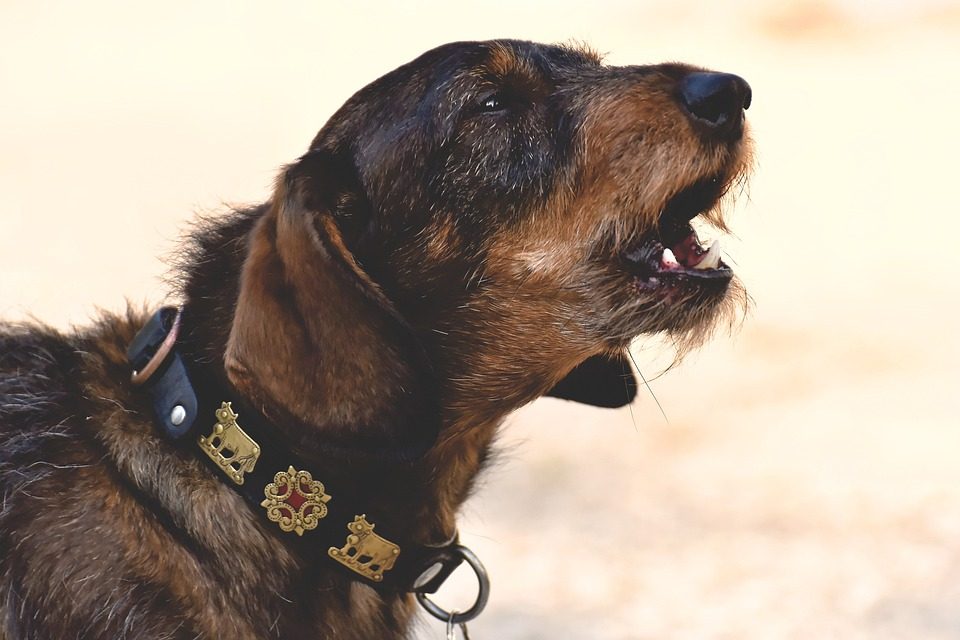Miniature dachshunds are cute and spunky little dogs that have won the hearts of many dog lovers worldwide. Known for their long bodies and short legs, these small pups are full of energy, loyalty, and personality. However, one of the most common questions that people ask when considering owning a miniature dachshund is, “are they loud?”
The answer is yes, miniature dachshunds can be loud dogs, and this can be a challenge for some owners. Their noisiness can come in various forms, such as barking, howling, whining, and growling, and can be a nuisance for neighbors and family members alike.
But why are miniature dachshunds so noisy, and is there anything you can do to reduce their volume? In this blog post, we will explore the different reasons why miniature dachshunds are loud, the types of noises they make, and how you can minimize their noisiness. Whether you’re a current owner or considering adding a miniature dachshund to your family, this post will provide valuable insights and practical tips for managing their vocal tendencies.
Key Takeaways:
- Miniature Dachshunds are known for their loudness due to their hunting heritage and temperament.
- Causes of their noisiness include boredom, anxiety, territorial behavior, and lack of training.
- Ways to minimize their loudness include providing proper exercise and mental stimulation, socializing them, and training them with positive reinforcement.
Miniature dachshunds’ history and characteristics
Miniature dachshunds have a rich history that dates back to the 16th century in Germany, where they were bred to hunt badgers, rabbits, and other small game. Their unique body shape was specifically designed to enable them to burrow into underground dens and tunnels to pursue their prey.
In addition to their hunting prowess, miniature dachshunds are also known for their feisty and stubborn personalities. They have a reputation for being independent, tenacious, and sometimes even a bit mischievous. However, they are also incredibly loyal and affectionate with their families, making them excellent companions and lapdogs.
In terms of physical characteristics, miniature dachshunds typically weigh between 8 and 11 pounds and stand between 5 and 7 inches tall. They come in a variety of colors, including red, black and tan, chocolate and tan, and cream. Their long bodies, short legs, and long snouts give them a distinct look that sets them apart from other dog breeds.
Unfortunately, their unique body shape also puts them at risk for certain health issues, such as intervertebral disc disease, which can cause back problems and mobility issues. It’s important for owners to be aware of these potential health risks and to provide their dachshunds with proper care and exercise to help prevent these issues from arising.
Causes of miniature dachshunds’ loudness
While miniature dachshunds can make wonderful pets, they are known for being somewhat noisy dogs. There are several reasons why miniature dachshunds may be loud, including:
- Breed characteristics: Miniature dachshunds were bred to be hunters, which means they have a natural instinct to bark and howl. They are also known for being vocal when they are excited or feel threatened. This can result in excessive barking, which can be frustrating for owners.
- Separation anxiety: Miniature dachshunds are known for being very attached to their owners and can become anxious when left alone. This can lead to excessive barking and howling as a way to communicate their distress.
- Lack of exercise: Miniature dachshunds are active dogs that require regular exercise to stay healthy and happy. If they don’t get enough exercise, they may become restless and bark as a way to release their pent-up energy.
- Medical issues: In some cases, excessive barking and vocalization in miniature dachshunds may be a sign of underlying medical issues, such as hearing loss, dental problems, or pain. If a dachshund’s barking patterns suddenly change, it’s important to have them checked by a veterinarian to rule out any underlying health problems.
While excessive barking and vocalization can be frustrating for owners, it’s important to remember that it’s a natural behavior for many dogs, including miniature dachshunds. With proper training and exercise, it is possible to reduce their noisiness and help them become more well-behaved and content pets.
Related: Are Miniature Dachshunds Naughty?
Types of noises miniature dachshunds make
Miniature Dachshunds are known for being vocal and making a variety of noises. These noises can be categorized into different types:
- Barking: This is the most common noise that Miniature Dachshunds make. They bark to communicate with their owners, to alert them to potential danger, or simply to express their excitement or frustration. Some Miniature Dachshunds are more prone to excessive barking than others, and it can be a challenging behavior to manage.
- Howling: Miniature Dachshunds may howl in response to certain stimuli, such as hearing other dogs howl or hearing high-pitched sounds. They may also howl when they are anxious or stressed.
- Whining: This is a high-pitched noise that Miniature Dachshunds may make when they are seeking attention or expressing their discomfort. They may whine when they are hungry, need to go outside, or are in pain.
- Growling: Miniature Dachshunds may growl when they are feeling threatened or to assert their dominance. They may also growl during play, as a way of communicating with their owners or other dogs.
- Screaming: This is a high-pitched, piercing noise that Miniature Dachshunds may make when they are in extreme pain or distress. It can be a startling and alarming sound, and may require immediate medical attention.
Understanding the different types of noises that Miniature Dachshunds make can help owners better communicate with and care for their pets. It’s important to note that excessive barking or other types of vocalizations can be a sign of an underlying behavioral or medical issue, and should be addressed by a veterinarian or professional dog trainer.
Ways to minimize noisiness
If you’re the owner of a miniature dachshund who barks excessively, there are several steps you can take to minimize their noise level:
- Positive reinforcement training: Training your dog using positive reinforcement techniques can help reduce barking. Reward your dog when they are quiet, and redirect their attention when they start barking.
- Exercise: One reason why dogs bark excessively is due to pent-up energy. Regular exercise can help your dog release their energy in a positive way, reducing the need to bark.
- Socialization: Proper socialization can help your dog become more comfortable around people and other animals, reducing anxiety and stress that may trigger excessive barking.
- Toys and distractions: Providing your dog with toys and other distractions, such as puzzle feeders, can keep them entertained and mentally stimulated, reducing the need to bark out of boredom.
- Consistency: Consistency is key when it comes to training your dog. Make sure that everyone in the household is following the same rules and reinforcing the same behaviors.
- Professional help: If your dog’s barking is causing significant disruptions or is a symptom of an underlying behavioral issue, seeking the help of a professional dog trainer or behaviorist can be beneficial.
By taking these steps, you can help reduce the noise level of your miniature dachshund and enjoy a quieter, happier home.
Conclusion
In conclusion, Miniature Dachshunds are adorable and lovable pets that are known for their loudness. They have a long history and unique characteristics that make them stand out from other breeds. Their loudness can be attributed to various factors such as their breeding, size, and temperament. Additionally, they have various ways of expressing their emotions, which can result in different types of noises.
Owners of Miniature Dachshunds can take steps to minimize their pet’s noise levels. Socializing and training are essential in helping them become more relaxed and less anxious. Additionally, providing them with enough exercise, toys, and attention can help reduce their stress levels and limit their barking and other vocalizations.
Despite their loudness, Miniature Dachshunds are still great companions that can bring joy and happiness to their owners. By understanding the reasons behind their vocalizations and taking steps to manage them, owners can create a peaceful and harmonious environment for themselves and their pets.

